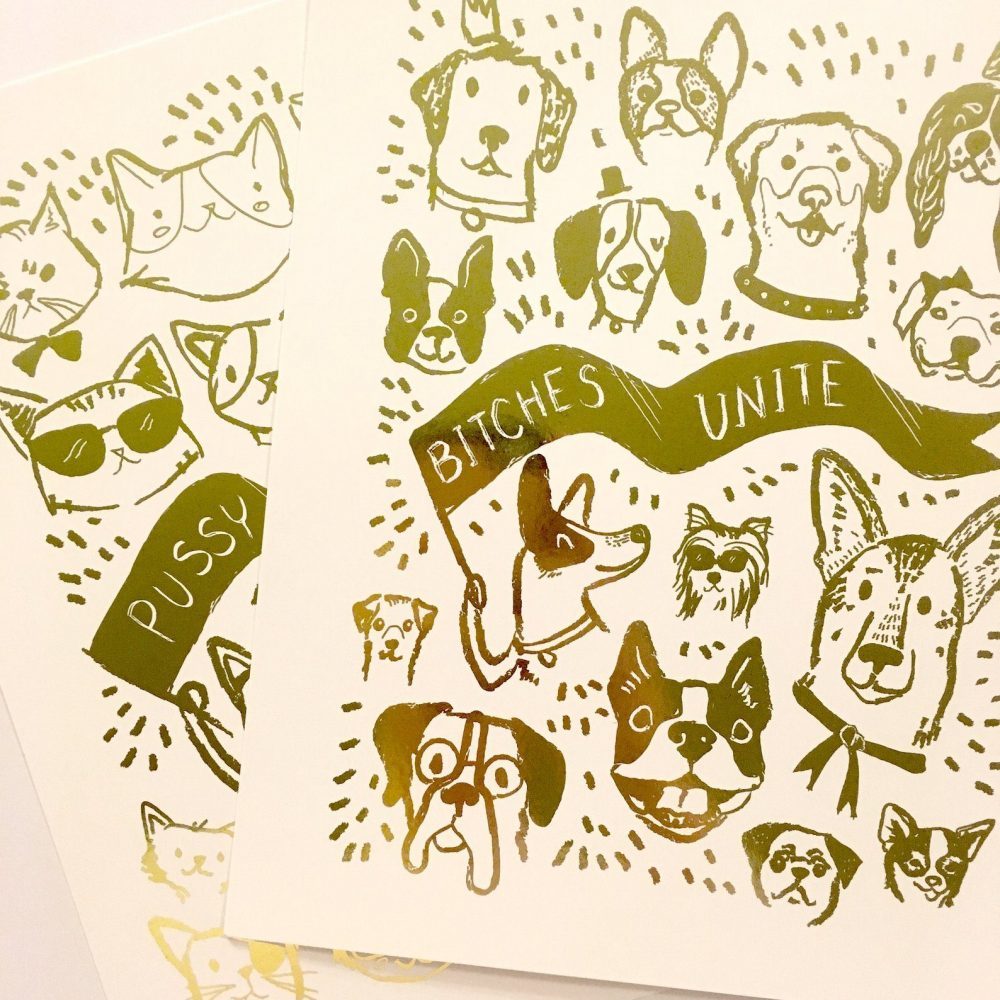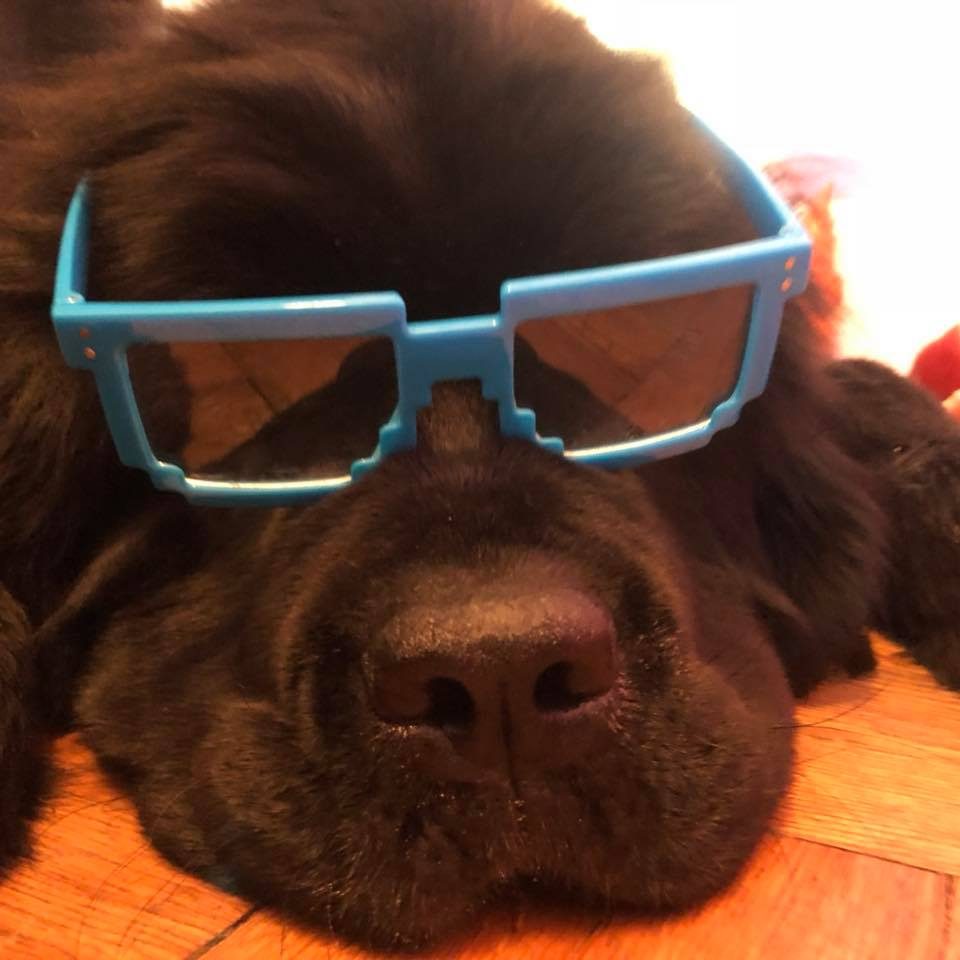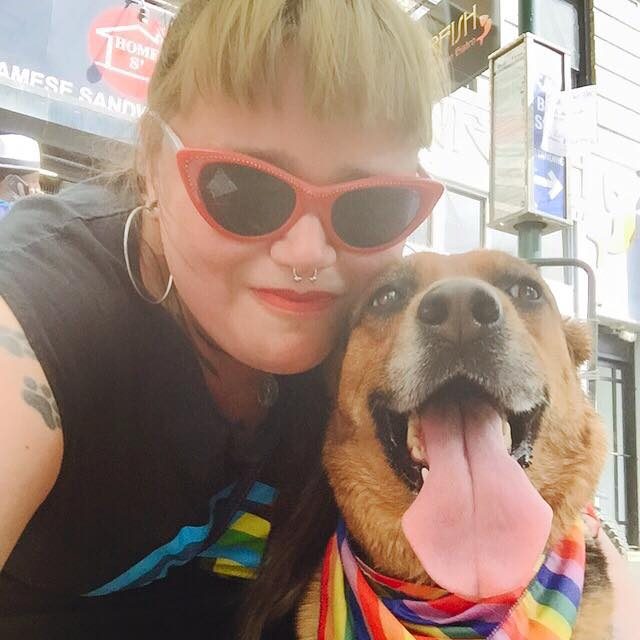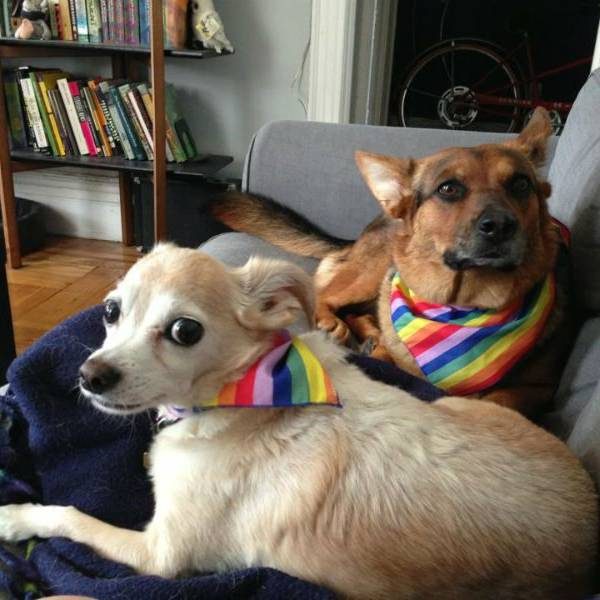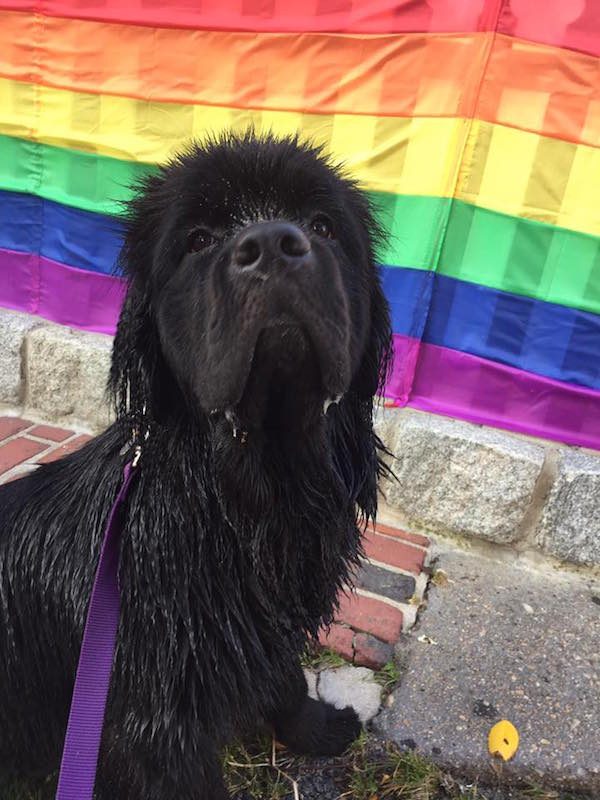
The dog days of summer are winding down and fall feels like it’s here to stay!
Last week my partner and I took our three dogs up to Provincetown, Massachusetts for our annual gaycation—this year’s trip being a little different because it involved bringing our 8-month-old puppy Sirius for the first time!
We all had an amazing time, and I’m definitely having a hard time reintegrating back into non-beach life, and dealing with being surrounded by straight people!
One of the things that I like best about vacationing in Provincetown is walking down the street and seeing rainbow/trans/leather/bear pride flags flying from nearly every building, and being able to spend the week in a queer bubble. Reentry into regular life (plus not getting to eat ice cream and swim every day) has been pretty brutal, not just for me but also for my dogs!
The day after we got home to Brooklyn my partner and I brought our puppy with us to a queer circus performance in a park. This excursion was part of my ongoing queer puppy socialization plan that I talked about a few months ago.
It was a great experience for her: marching bands, stilt walkers, microphones, crowds of people, puppets, and flamboyant costumes. These are all queer things that I want my young dogs to get socialized to so they are comfortable with those sorts of environments as they get older.
While we were watching the show, multiple straight people literally stepped on my 90-pound puppy even though we were sitting inappropriate sitting space, with plenty of room around us.
When I intervened and asked the people to walk around and not step on my dog these straight people actually got offended! It reminded me how the only negative experiences we had on gaycation were with straight people (cisgender straight white men to be even more specific).
I’m not saying that all straight people are bad, or that queer people are somehow always better about treating animals with the respect that they deserve, but…I have noticed a trend.
While eating ice cream in town on gaycation, a man came up and started petting my dog without asking first (something no queer people did) and proceeded to start making growling noises at her, grabbing her nose, and saying he wanted her to bite him.
I called my puppy away with a cookie and said, “That’s not how we play with her.” At which he got annoyed, and tried again, again I called her to me for a cookie and the man got frustrated and walked away. I’m not sure what to make of this—clearly, we are living in a cultural and political moment where people in the U.S. are feeling emboldened to be racist/homophobic/sexist/transphobic.
I wanted to tell the man off, I wanted to tell him to leave us alone, but I was also afraid as a queer person that the situation could escalate and he could react violently towards my partner and me or our dog, so I turned it into a game for my puppy, gave her lots of treats to distract, and deescalate the situation as best I could until the man got bored and left us alone.
I have to teach my dogs how to handle disrespectful humans (who are rude but not dangerous), but I also have to consistently advocate for my dogs and their boundaries. As a queer person, I’m used to having to fight for space to have my family and my identities be seen as worthy of taking up space in a homophobic world, so in some ways, my own queerness has trained me to be ready to speak up for animals who remain culturally voiceless.
I believe animal rights and queer rights are intertwined. Nicole Georges and I talked about these themes last month when I interviewed her about her latest graphic memoir, Fetch.
I believe that it is our job as pet guardians to help humans responsibly and considerately respect the needs and individual desires of the pets we build families with. Dogs (or any other animal) are not walking inanimate stuffed animals put in existence only to provide tactile pleasure to humans.
They are not public property to be touched without asking. I think a lot about the ways strangers instinctively reach to pet my dogs without asking, in the same way reach to touch my tattooed skin without my consent. Ironically as I’m writing this column I’m wearing my “consent is a thing” shirt I bought to support Ms California Leather, while my rescue pup who has taught me so much about how to advocate for her needs and her boundaries has chosen to cuddle up next to me.
This juxtaposition reminds me how much queer and leather culture have taught me how to name boundaries—how to know what mine are, and how to advocate that those boundaries and the boundaries of others be respected.
I don’t think advocating for my boundaries or my dogs’ boundaries make me rude, but asserting boundaries about personal space or touch do have a tendency to annoy straight people. Again this idea of consent seems to be something that queer people I encounter are much more respectful about than straight people. Coincidence? I don’t think so. While we were on gaycation I saw a T-shirt in one of the shops that said “dog is friendly, human isn’t.” I probably should have added that one to my wardrobe!

